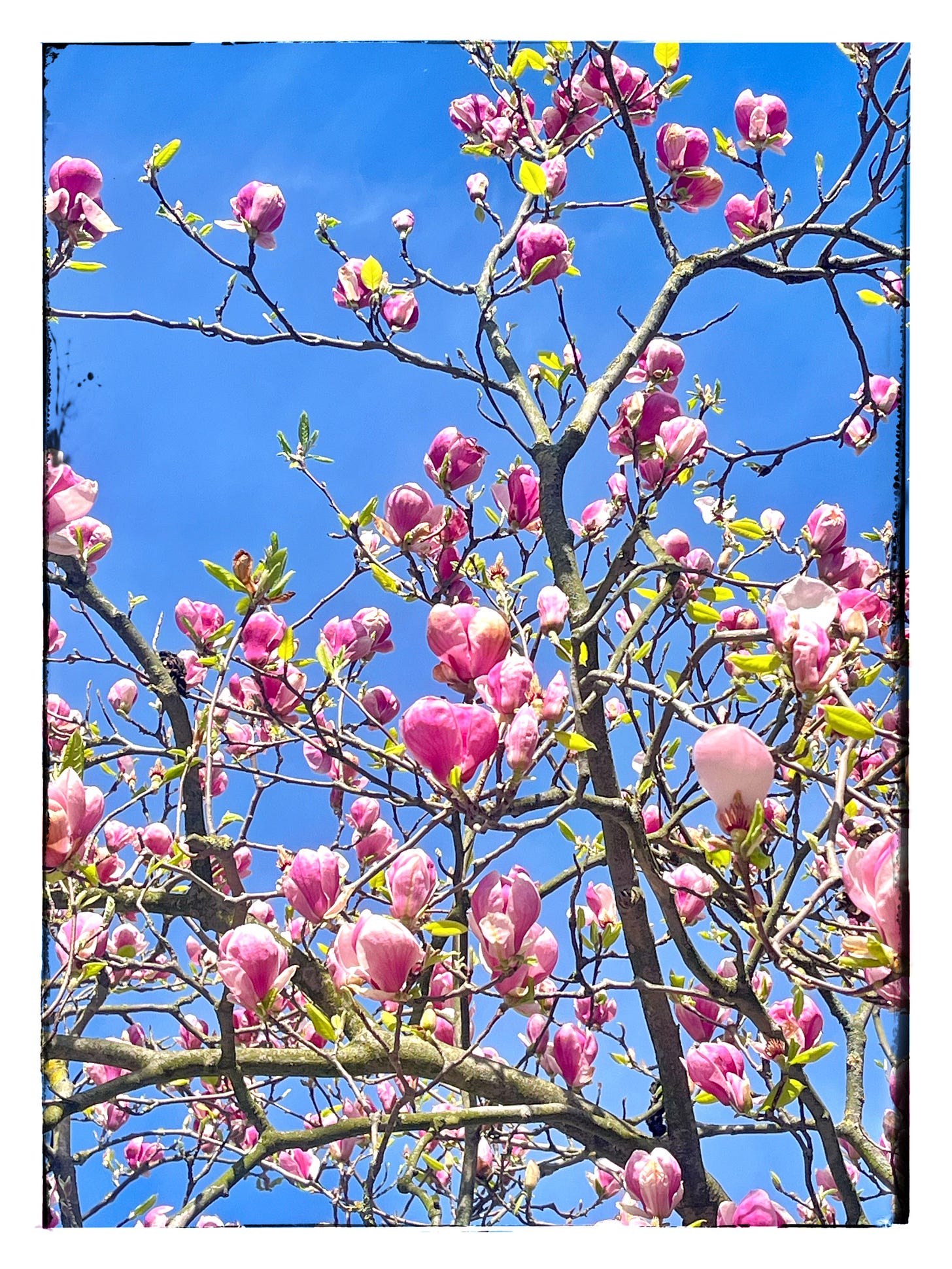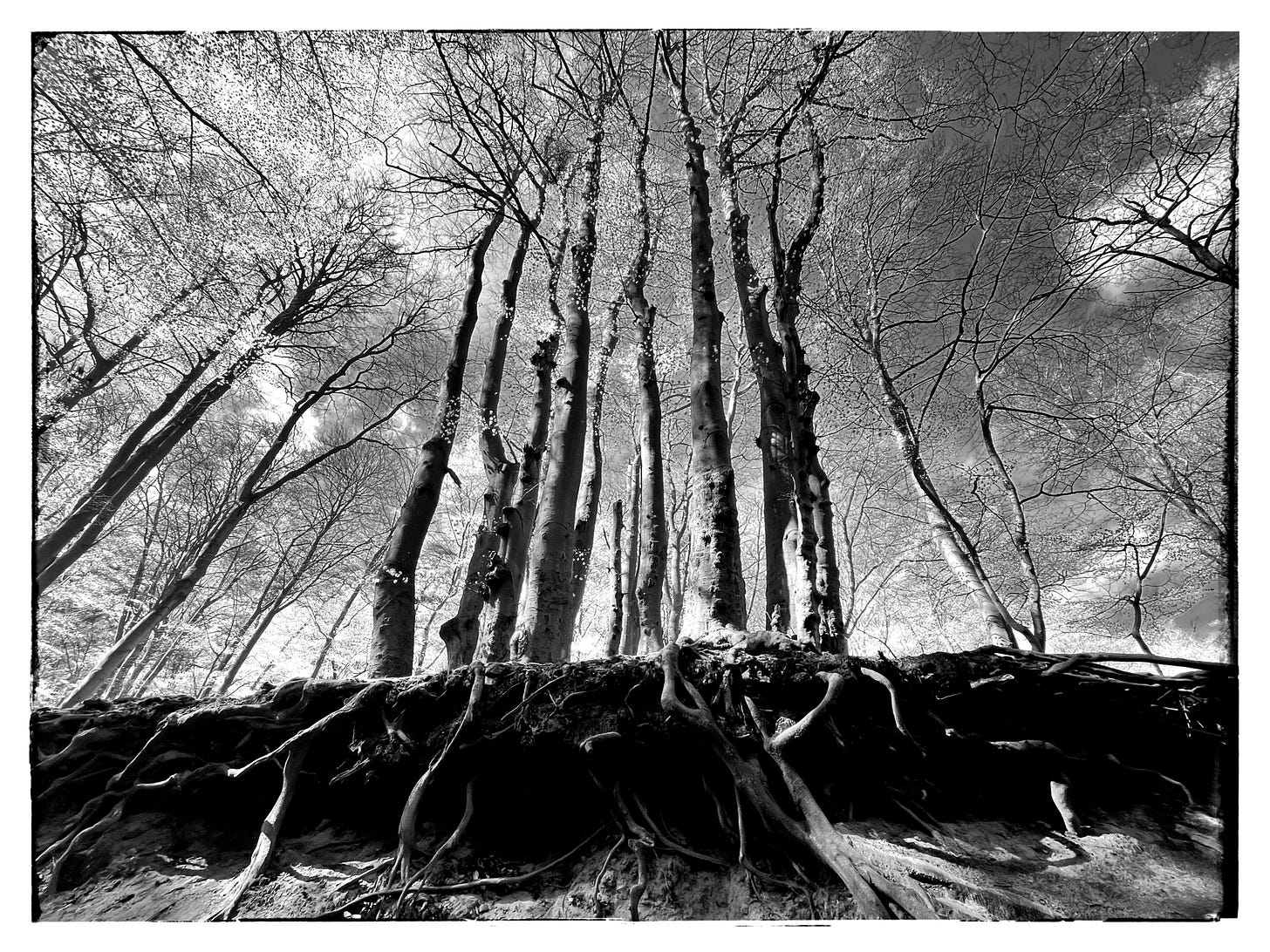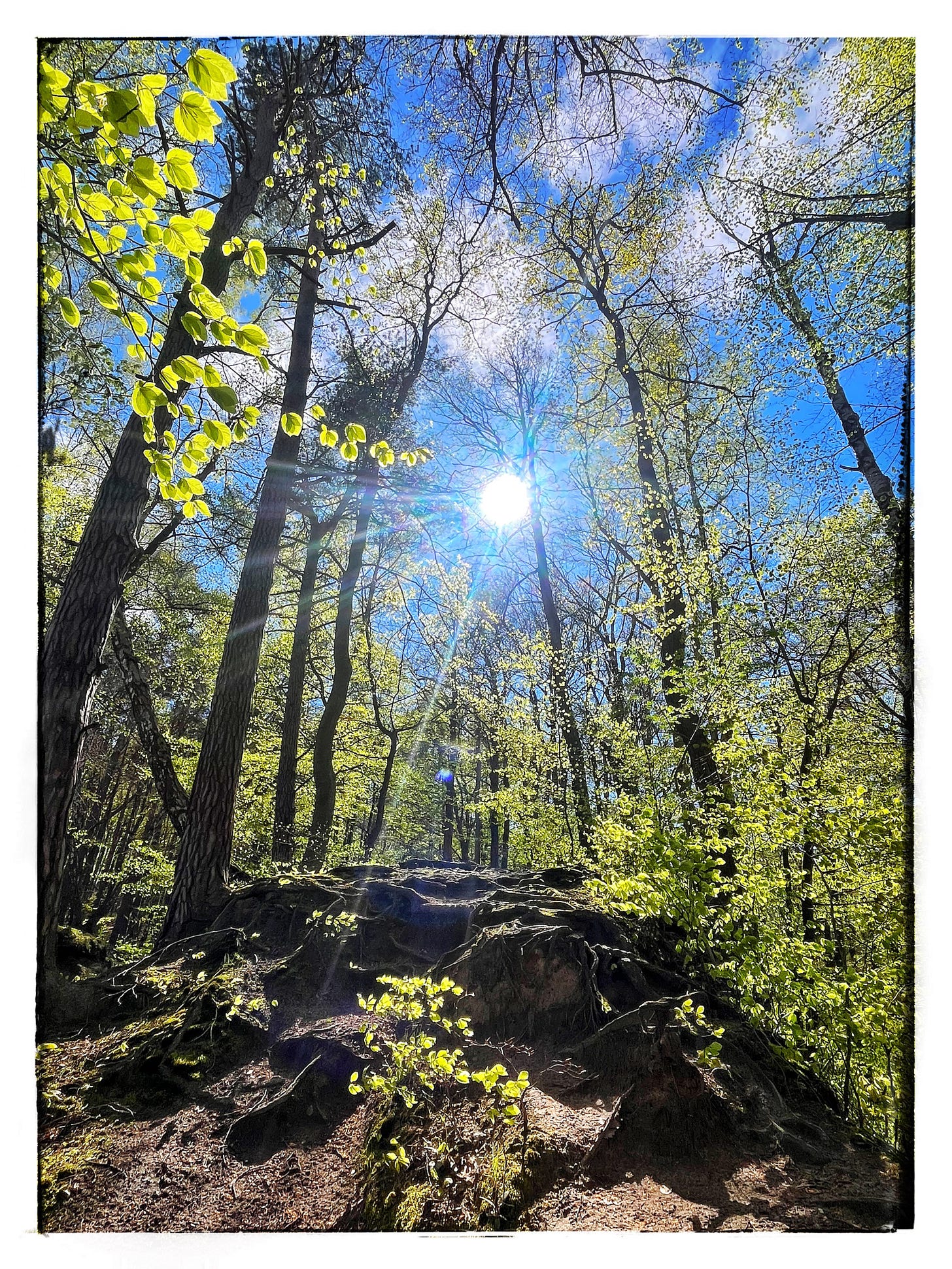We all carry things we don’t question.
The I should be more productive thoughts. The I should have accomplished more by now beliefs. The I need to keep this just in case decisions. The I should want this because it’s what success looks like assumptions.
They sneak in slowly. One excuse, fear, or borrowed belief at a time. We barely notice until we’re dragging around obligations that don’t make sense, ambitions we don’t actually care about, and possessions that just take up space.
I spent April facing mine.
It started with something practical - clearing out my old home.
What I thought would be simple decluttering turned into something else entirely. Every object had a story. Not just stuff, but suspended decisions. A hope I’d shelved. A fear I hadn’t named. A version of myself I was still negotiating with.
There were the unread books I thought would make me someone else. The half-finished project from a life chapter I no longer live in. A dress for a party I never made it to. A book on confidence.
Each one asked the same question:
Why am I still keeping this?
And Then There Was Grief Inside the Clutter
Some things were even heavier.
Because they weren’t exactly mine. They belonged to people I lost (including some of my old selves).
My parents passed away years ago, but loads of their things were still there. Today marks 29 years since my mother died. So this wasn’t just sorting through clutter. It was sorting through grief. Memories stacked in cardboard boxes. Items infused with a time when they were still here. Her handwriting. His tools. My grandmother’s dishes. Things from other lives, other studies, other paths I once thought I'd follow.
Letting go of even some of it felt like betrayal. Like releasing the last tangible thread to people I still miss.
And some things - like paperwork - carried their own emotional delays. It took me sixteen years after my dad passed away to update the title deeds. Sixteen years. Something about signing those documents made it real. It felt like crossing an invisible line. Like I had officially become an adult.
And then there were the notes. The old notebooks and binders from when I studied ethnolinguistics—pages filled with insights, scribbles, dreams I had attached to that version of myself. Then the folders from photography. Then the books and breakdowns from film school. And then, and then, and then…
I was trying to hold on. Not just to the papers, but to the selves they represented.
But those versions of me are already woven into who I am now. Not the main theme, but definitely adding nuance.
Do I really need the notes to prove it?
What for?
The Transaction of Shoulds
Every “should” is a transaction. You pay a cost for something you think is worth it. You go to the gym even when you don’t feel like it because being strong matters to you. You have the hard conversation because the relationship is worth saving.
But sometimes, we keep paying long after the value’s gone. We invest in roles, routines, or identities we’ve outgrown. Out of momentum, guilt, or fear of what the void might bring.
That resistance you feel is data. It’s your body doing the math and realizing: this no longer adds up.
When we ignore that signal long enough, we lose trust in our own judgment. We override ourselves so often, we forget how to listen.
Personal Laws of Physics
Some beliefs become so ingrained they feel like gravity.
I must be available to everyone. I should finish everything I start. I need to keep everything just in case.
These aren’t facts. They’re “just” rules you inherited, often from family, culture, or survival. Maybe they protected you once. Maybe they helped you win in a different life chapter. But they might not serve who you are now.
Letting go doesn’t mean betrayal, but an update.
Solutions to Problems That No Longer Exist
A lot of shoulds were once smart adaptations. Survival strategies. Real solutions to real problems.
But the context changes. And what once helped you now hems you in.
It’s like the story of a kid learning to bake from his mother. She tells him to cut off the ends of the pie before putting it in the oven.
“Why?” he asks.
“That’s how your grandmother did it.”
So they call grandma, who laughs and says, “Oh, that? I had a tiny pan. It was the only way it would fit.”
This is how it goes. We carry customs that don’t belong to our circumstances. We repeat rituals with no relevance. We shape ourselves around constraints that disappeared years ago.
We become loyal to limitations that no longer exist.
The Empty Space
The hardest part of shedding shoulds isn’t letting go.
It’s staring down the empty space that’s left.
Because when your life has been shaped by what you should do, it’s disorienting to ask:
What do I actually want now?
What matters—not to the person you were trying to become, but to the person you are?
That emptiness can feel like freefall. But it’s also the first honest space you’ve had in a while.
Resisting the Rush to Refill
There’s a powerful reflex to rush in and fill the space.
You clear the clutter, reclaim your energy, recover bandwidth and then scramble to refill it with something productive, something new, something “better.” Or just SOMETHING.
But the real work is staying empty. Not forever. Just long enough to notice what arises without all that pressure.
It’s raw. Vulnerable. It feels like winter. You feel exposed, like there’s nothing left to hide behind.
But rushing to refill just recycles the same patterns with different packaging. The old story with new costumes.
The space itself is sometimes the medicine. The quiet is where your real voice returns.
Ask yourself:
What pulls me when I’m not pushing?
What matters when no one’s watching?
What desires still whisper, even when I try to ignore them?
Questions
Here are a few questions that helped me sort through my own internal clutter:
What am I doing out of habit, not choice?
If I were starting from zero, would I pick this again?
What would actually happen if I stopped?
What am I afraid would happen if I let this go?
Does this fit the current version of me—or just an old one I haven’t updated?
Am I keeping this because it matters—or because letting go feels like failure?
We think of letting go as subtraction. But it’s also revelation.
It’s how we see what was waiting beneath all the noise.
The most useful skill might not be adding more to your life but finally putting down what was never really yours.
And trusting that what’s left… is enough.
Making space to think, feel and move








"Letting go isn't betrayal, it's an update" 🔥
It's so difficult to let go of what we believe we shouldn't.
But there's liberation in letting go.